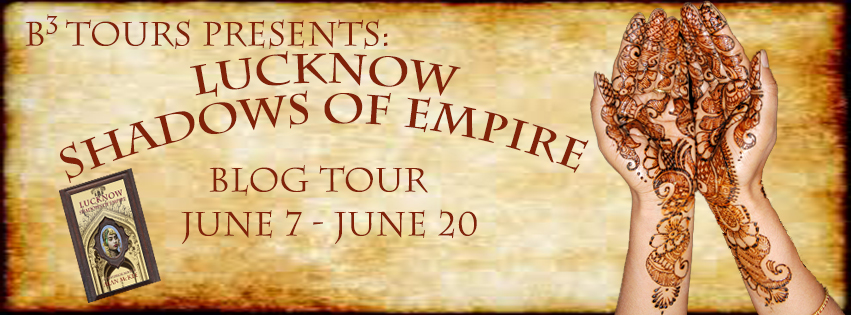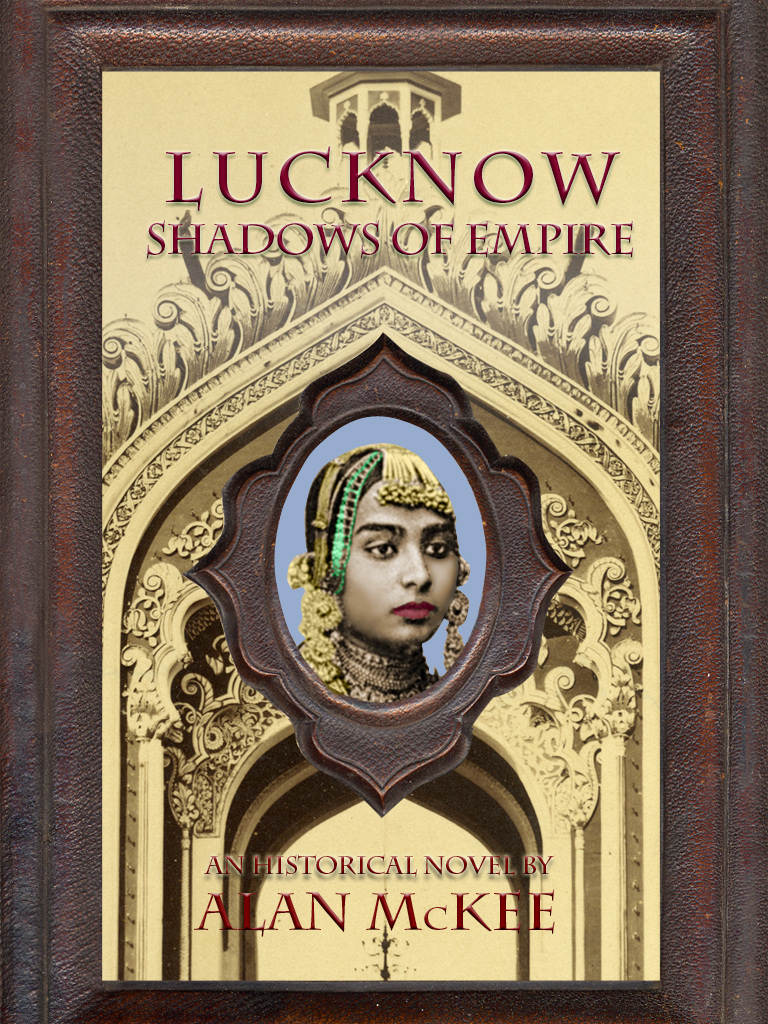 Title: Lucknow Shadows of Empire
Title: Lucknow Shadows of Empire
Author: Alan McKee
Genre: Historical Fiction
Release Date: Available on iBookstore and Amazon paperback, Kindle: Coming Soon
Tour Organizer: B3
Synopsis:
The greatest tragedy of Queen Victoria’s reign……was a personal experience for Henry Booth. His mother died when more than onehundred women and children were hacked to pieces with meat cleavers by the rebel forces of the Great Indian Mutiny. This event, which transformed an empire, left deep scars in Henry’s character.
Years after the slaughter, Henry receives his mother’s journal from India and the young Oxford student finds himself suddenly entangled in his mother’s past, a past he never suspected, a past which threatens his own life in the present.
While Henry tries to elude the dangers that confront him, he comes to know his mother, not through the idealized memories of a seven year old child, the age when he last saw her, but through her journal. The journal teaches Henry that his Victorian assumptions about the nature of women are utterly false. What he learns from his mother’s private thoughts allows him to give up the myth of male supremacy for a passionate relationship with a young Indian woman who has been trained as a dancer, musician, poet and courtesan.
Shadows of Empire is a love story and mystery that takes place in the exotic settings of Lucknow, northern India, and Victorian London. In addition to the drama of two interwoven cultures, and two story lines of past and present, the reader will also
encounter the remarkable subculture of the Lucknow courtesans, highly skilled artists who were leaders of their society and, unlike nearly all other women on the subcontinent, lived their lives without male domination.
Buy Links:
Barnes and Noble Paperback
Shadows of Empire Amazon Paperback
2. Action sequence: (Excerpt)
“Those porters don’t look any too strong,” Henry remarked. “I think I’ll give a hand. I’ll take one end and you take the other, Harry.”
“Right,” the other man said as they got out of the carriage and approached the porters. Both of the young men had forgotten the arguing Indian jarveys. In the crowded street, hey didn’t realize that as they approached the trunk, three of the Indians were walking right behind them, following on their heels.
“Mother,” Henry called out, “We’ll take it from here. Just put it down,” he said to the porters.
As the trunk touched the ground, the three Indian drivers sprang forward. Henry seized one end of the trunk and Harry the other.
“What the devil?” Henry exclaimed as the three men tried to seize the trunk from them. “They’re Thugs,” Henry called out.
One of the Indians drew a wicked looking curved knife. Keeping the trunk between himself and the man with a knife, Henry swung the heavy trunk with Harry and managed to slam it into their assailant. Just as he went down, Henry felt someone leap on his back. In order to throw him, Henry had to put down his end of the trunk.
“Harry,” he called, “whatever happens don’t let go your end.” Then, he attended to the business of throwing the man on his back to the ground. As the man began to be dislodged, he tried to slip a white scarf around Henry’s neck, and failed. Henry threw him hard and when the man tried to get up from the street, Henry finished him with a neat right cross. He then looked around just in time to see two other men dragging
Harry and the chest toward one of their waiting carriages.
“Hold on, Harry. I’m coming,” and he sprinted across the few yards between himself and the men.
Author Bio:
Alan began writing at age six by plotting with his father on Superman, Batman and other action hero stories for DC Publications in New York. His other writing includes commercial films, brochures and advertisements. Alan is also a photographer, using twenty-first century technology to capture macro images in nature. His work is inspired by his mother, Marjorie McKee’s, abstract expressionist painting. His work is in private collections globally.Alan lives with his family in Toronto but spends time at his second home in Nova Scotia. His special interests are British history and nineteenth century literature. He has been particularly inspired by two great British historians, E.P. Thompson and Eric Hobsbawm. Oxford, England remains a soft spot as does the writing of Wilkie Collins and Sir Arthur Conan Doyle. His other books are The Iron Beast and The Minotaur’s Children. The Minotaur’s Children details the trade in children and young girls between London and the brothels on the continent. It is against this backdrop that the story is told.
Author Links:
Website
Alan’s Blog
Alan on Facebook
on Goodreads
Hear what the Historical Novel Society has to say



